Book Bag: ‘The Original Bucky Lew’ by Christopher Boucher; ‘The New Naturals’ by Gabriel Bump
| Published: 12-15-2023 11:26 AM |
The Original Bucky Lew: Basketball’s First Black Professional
By Chris Boucher; Wings ePress Inc.
Harry “Bucky” Lew might not have the name recognition of Jackie Robinson. But the two men had something in common: Both broke an unstated color barrier in sports, Robinson in baseball and Lew in basketball.
Lew, who was born in Lowell and spent a good part part of his adult life in Springfield, was the first African-American to play professional basketball, when, at age 18, he signed with the Lowell Pawtucketville Athletic Club of the New England Basketball League for the 1902-03 season.
Now, Chris Boucher, a writer and basketball fan who lives north of Boston, has brought Lew back to life with “The Original Bucky Lew,” a book that he calls “biographical fiction” that involves extensive research in various archives, such as period newspaper stories, with some creative imagining of some key periods of Lew’s career and life.
That career included more than two decades in the early 20th century during which Lew formed a barnstorming basketball team that played throughout New England.
Over his 25-year career, he was also a coach, a referee, and a team owner in a sport that, when he was first part of it, was all white. This was years before the NBA was formed (which in turn didn’t draft its first Black player until 1950).
A talented violinist as well as basketball player, Lew died in Springfield in 1963 at age 79.
Boucher’s story focuses on some key early moments in Lew’s career, noting the racial hostility he faced at various points but also the support he received from many fans and fellow basketball players.
Article continues after...
Yesterday's Most Read Articles
 Political newcomer defeats Shores Ness for Deerfield Selectboard seat
Political newcomer defeats Shores Ness for Deerfield Selectboard seat
 Granby Bow and Gun Club says stray bullets that hit homes in Belchertown did not come from its range
Granby Bow and Gun Club says stray bullets that hit homes in Belchertown did not come from its range
 Annette Pfannebecker: Vote yes for Shores Ness and for Deerfield
Annette Pfannebecker: Vote yes for Shores Ness and for Deerfield
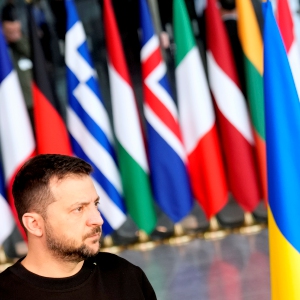 Susan Tracy: Support Ukraine funding
Susan Tracy: Support Ukraine funding
 Around Amherst: Bockelman joins in launch of governor’s housing push
Around Amherst: Bockelman joins in launch of governor’s housing push
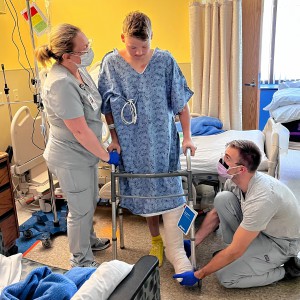 Defying the odds: Hadley’s Owen Earle back competing less than two years removed from horrific accident
Defying the odds: Hadley’s Owen Earle back competing less than two years removed from horrific accident
His very first game with Lowell, played in Marlborough in 1902, starts on a sour note: The Lowell team’s owner and manager, Jimmy Gray, doesn’t want to play Lew. With one of the other team’s regulars hurt, Gray first sends only four of his players onto the court, prompting boos from the crowd and questions from the referee.
So Gray grudgingly sends Lew into the game, and he quickly wins a jump ball, “ripping the ball away from his opponent … (and) firing a pass ahead” to a teammate, who promptly hits a basket for the game’s first score.
As Boucher writes, Lew soon won recognition as a talented player, an excellent defender and passer, a penetrating close-in shooter, and a guy who had a knack for passing to himself if needed — by sending the ball to an open spot on the court and beating everyone to it.
“The Original Bucky Lew” also explores how physical basketball was in its early days, with players often smacking each other around and getting away with it. As Lew noted himself in a 1958 interview in the Springfield Union newspaper, “I took the bumps, the elbows in the gut, knees here and everything else that went with it. But I gave it right back.”
In that same interview, Lew also spoke about the racial hostility he sometimes faced: “All those things you read about Jackie Robinson, the abuse, the name-calling, extra effort to put him down … I got the same treatment and even worse.”
Once, as Boucher relates, Lew was refused a room in a hotel in New Hampshire after a game because of his color. So he walked 10 miles up the road to the next town to get a room, accompanied by several white basketball players who offered him solidarity (though the room they shared didn’t smell too good in the morning).
Lew shrugged off these kinds of episodes, winning plenty of respect for his courage and dignity. As he told the Union, “Some of those same boys who gave the hardest licks turned out to be among my best friends in the years that followed.”
Gabriel Bump made a splash in 2020 with his debut novel, “Everywhere You Don’t Belong,” a funny though sometimes dark coming-of-age story about an African American teen on Southside of Chicago who’s trying to navigate school, love, and the tough streets of his neighborhood.
Bump wrote much of the book — and sold it — while he was a graduate student in the MFA Program for Poets & Writers at the University of Massachusetts Amherst.
Critics gave it high marks, with Kirkus Reviews calling the book a “sharply funny debut novel that introduces an irreverent comic voice”; it was also a New York Times Book Review Notable Book of 2020.
Now Bump, who grew up in Chicago and today teaches at the University of North Carolina at Chapel Hill, has drawn on his experience living in Massachusetts in crafting his second novel, “The New Naturals,” which offers another mix of droll humor juxtaposed against an unsettling portrait of modern America.
Rio and Gibraltar, Black academics in Boston expecting their first child, have found their positions increasingly disheartening — “teaching Black people to white children,” as Rio puts it — and they’re even more disillusioned by the daily news, from police killings to smashmouth politics to climate disasters.
When they lose their newborn child to illness, the couple make a radical change: They decide to start an underground society — literally underground — beneath a hill in western Massachusetts topped by an abandoned restaurant. An eccentric billionaire decides to finance the scheme, where the future residents will be known as The New Naturals.
Word of mouth about this utopian community, where everyone will be loved and treated equally, soon spreads, attracting a host of new characters to the site, from a burned-out journalist to a former soccer star to two homeless men from Chicago.
But building utopia, as past visionaries invariably discovered, is pretty damn hard, and the new settlement’s growing pains spark tensions with the surrounding community that threaten its survival. It’s a situation Bump treats with both mordant humor and brisk dialogue, while also contending with the serious issues at the root of the novel.
In an interview with Publisher’s Weekly this past summer, Bump said the book’s origins came in part from driving along Route 2 from western Massachusetts to a former teaching gig in Boston; in addition, he and his wife lost their first child early this year while his wife was pregnant.
The New York Times says “The New Naturals” cuts right to “perhaps the most daunting anxiety of modern life: the sense that some load-bearing beam is about to cave, and there’s only a foggy, terrifying guess as to what comes next.”




 A DIY approach to flying: Local pilots build and help build their own aircraft
A DIY approach to flying: Local pilots build and help build their own aircraft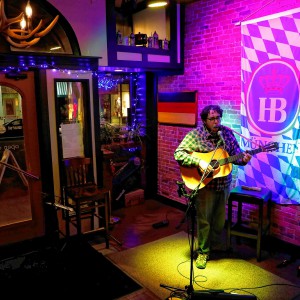 You’re up next: Western Mass open mic scene heats up post-pandemic
You’re up next: Western Mass open mic scene heats up post-pandemic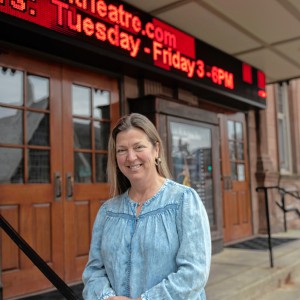 One upon a story slam: This year’s Valley Voices winners head to a final competition
One upon a story slam: This year’s Valley Voices winners head to a final competition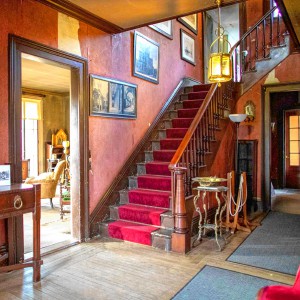 Preserving a key part of Emily Dickinson’s legacy: Historic Evergreens house reopens at the Emily Dickinson Museum
Preserving a key part of Emily Dickinson’s legacy: Historic Evergreens house reopens at the Emily Dickinson Museum